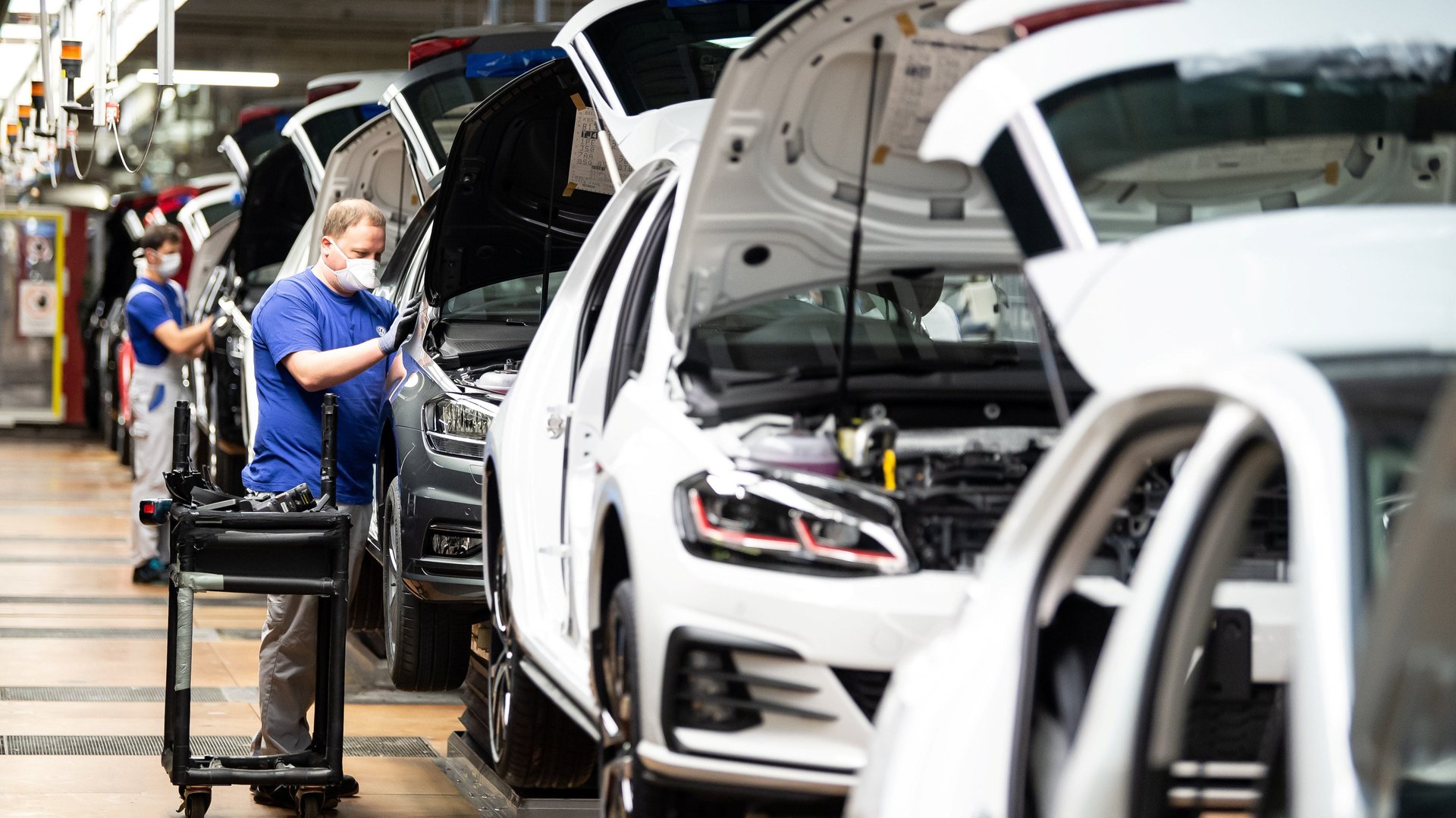New car registrations in Europe have hit a historic low
A shortage of semiconductor chips continues to plague European car manufacturers, as car sales fell for a seventh straight month on the continent. Just 680,000 new cars were registered across the European Union in January—a new historic low for the first month of the year going back to the early 1990s, when the European Automobile Manufacturers’ Association (EMEA) first started keeping track of these numbers.


A shortage of semiconductor chips continues to plague European car manufacturers, as car sales fell for a seventh straight month on the continent. Just 680,000 new cars were registered across the European Union in January—a new historic low for the first month of the year going back to the early 1990s, when the European Automobile Manufacturers’ Association (EMEA) first started keeping track of these numbers.
France and Italy, in particular, have seen giant drops in registrations of 18.6% and 19.7% respectively. For Italy, the decline has been so dire that it is mulling an annual $1.1 billion rescue package for its automobile industry. The money is designed, in part, to nudge production towards electric vehicles, a field in which Italian car companies have lagged.
Japanese car companies weathered the chip shortage better
But in a wrinkle, January was not a poor month for everyone. In fresh data released on Feb. 17, the EMEA also provides a break-up of new car registration numbers by manufacturer. The traditional European companies—Volkswagen, which owns Audi, Skoda, and Porsche; Stellantis, which owns Peugeot, Fiat, and Citroen; Renault; BMW; Mercedes-Benz—all registered drops in sales compared to January 2021.
But many Asian manufacturers did better. Hyundai, for instance, witnessed a 33% rise in new registrations. Mazda, Toyota, and Honda also saw surges in sales, year-on-year. For the 2021 calendar year, in fact, Hyundai, Toyota, and Mazda all saw spikes in registrations compared to 2020.
The pattern fits with other reports that Asian manufacturers managed the chip shortage better. In July 2021, Fitch Ratings noted that Japanese car companies were outperforming their US peers. “The strong performance underlines the resilience of [Japanese manufacturers’] supply chains, particularly the policy of holding higher inventory levels of key parts, such as chips,” a Fitch research note said. “This follows the lessons learnt from previous disruptions, including from natural disasters in Japan and abroad.” Toyota, for instance, nearly doubled the value of its inventory after 2011, when an earthquake-tsunami combination battered Japan.
But as the chip shortage wears on, even companies with fallback chip stocks will start to struggle. Last week, Toyota said that it will make nearly 100,000 fewer vehicles than planned in March. Honda, too, expects a difficult year because of the great chip deficit, a Honda executive told the Wall Street Journal: “It’s like everyone is grasping to get a supply of semiconductors.”